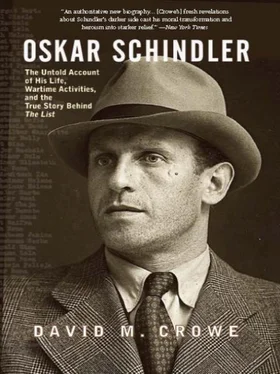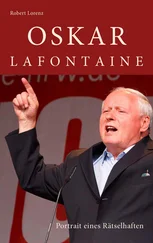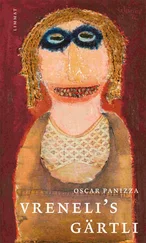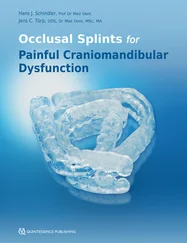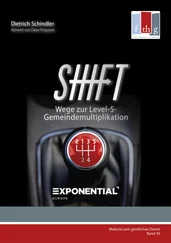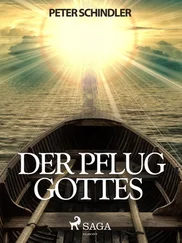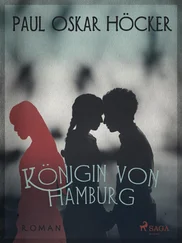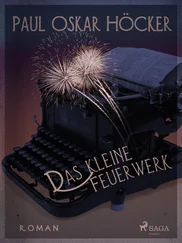As the campaign for the 1935 elections shifted into high gear, Czechoslovak and mainstream German politicians grew increasingly concerned about Henlein’s movement; but, despite Henlein’s reassurances of his loyalty to Czechoslovakia and its democracy, his rallies, with their Nazi-like atmosphere, did much to neutralize his declarations that he was not Adolf Hitler’s puppet. Moreover, many of Henlein’s followers were former Sudeten Nazis who admired Hitler and Germany. 45Yet it was not just the growing pro-Nazi sentiments among the Sudeten Germans that troubled Czechoslovak leaders; they also worried about the disciplined, aggressive campaign waged by Henlein’s party before the May 19 elections. It reminded some Czechoslovaks of similar tactics in Germany three years earlier that helped bring Hitler to power. Some Czechoslovak politicians feared that an SHF victory could have severe implications for the country’s democratic traditions. Widely distributed pamphlets attacked Jews and communists and called for Sudeten Germans to rally behind World War I veterans like Henlein. The SHF propagandists were careful to attack German-speaking Jews and communists, not those of Czechoslovak origins. 46
Growing political demands ultimately led President Masaryk’s government to consider outlawing the SHF before the election, though Masaryk ultimately decided that allowing Henlein’s party to function within the confines of the Czechoslovak democratic system was better than forcing it to operate illegally. But he would only do so if Henlein agreed to change the party’s name. 47The SHF now became the Sudeten German Party (SdP; Sudetendeutsche Partei ) and appeared on the ballot of the May 19, 1935, elections. 48The SdP received the largest percentage (15.2 percent) of the 8.2 million votes cast in the election. Over 63 percent of the Sudeten Germans in Bohemia voted for the SdP and 56 percent in Moravia-Silesia. The SdP gained 44 seats in the three-hundred-member House of Deputies and 23 out of 150 seats in the Senate. Collectively, Czechoslovakia’s right- and left-wing extremist parties gained 40 percent of the vote, which gave them 119 seats in the Chamber of Deputies and 59 seats in the Senate. 49To counter the new strength of Henlein’s party and build a viable governing coalition, Prime Minister Jan Malypetr invited all mainstream German parties except the SdP to join the government. 50
Oskar Schindler and Abwehr: Early Contacts and the Sudeten Crisis
Despite the results of the 1935 election, Czechoslovakia entered the last four years of its prewar history with a viable political system. 51Internationally, Germany was the greatest threat to Czech security, particularly after Hitler’s illegal occupation of the Rhineland in 1936. Because the Nazi list for “elections” to the Reichstag after the takeover of the Rhineland included Sudeten Germans, Germany’s ties to Henlein’s party and its long-range goals for Czechoslovakia were underscored. As Gerhard Weinberg notes, German military planners were already contemplating moves towards Czechoslovakia, and Hitler’s diplomats were laying the groundwork for such action. 52
One of the important elements in such planning was Abwehr (German, abwehren —to ward or fend off) the counterintelligence and counterespionage branch of the Wehrmacht, the term for the German armed forces in Nazi Germany from 1935 until 1945. Created in 1920, Abwehr was designed to aid military defense work for the Weimar Republic’s armed forces (Reichswehr). Once Hitler came to power, Abwehr became a much more aggressive tool of German military policy, particularly under Konteradmiral (Rear Admiral, later Admiral ), Wilhelm Canaris, who ran Abwehr from 1935 until 1944. Evidence suggests that Abwehr made its initial contact with Sudeten Germans in Czechoslovakia as early as 1928. By the time that Henlein scored his tremendous electoral victory in 1935, Abwehr had a well-established network of agents in Czechoslovakia. 53
Yet Abwehr was involved in more than counterintelligence and counterespionage, important elements in the ongoing power struggles between the Nazi Party and the military in Germany and elsewhere. In Czechoslovakia, Abwehr was involved in Sudeten German affairs, particularly the power struggle within the SdP between Henlein and the “traditionalists,” whom Abwehr supported, and the “radicals,” who had the backing of Germany’s SD ( Sicherheitsdienst ; Security Service) and the Gestapo ( Geheime Staatpolizei, or secret state police, founded in 1933). The SD was the SS’s ( Schutzstaffeln ; defense and protection squads of the Nazi Party) counterespionage and intelligence service under Reinhard Heydrich. 54SD and Gestapo involvement in Sudeten German affairs began after the dissolution of the DNSAP in Czechoslovakia in 1933. Worried over the flood of Sudeten German Nazis into Germany, Rudolf Hess created a joint SD-Gestapo Sudeten German Control Center (Sudetendeutsche-Kontrollstelle ) to interview the recently arrived Sudeten Germans, weed out spies, and gather information on developments in Czechoslovakia. As the self-proclaimed guardians of Nazism, it is not surprising that the SD and the Gestapo soon became involved in a power struggle between radicals and traditionalists in the SdP. Early in its involvement with Sudeten German questions, the SD and the Gestapo sided with the more radical wing of the SdP and maintained close ties with former members of the outlawed NDSAP. Abwehr became the ally of Henlein and the traditionalist faction of the SdP, which initially sought to work within the confines of the Czechoslovak republic. 55
In some ways, Oskar Schindler’s work for Abwehr either reflected or helped mold his own opinions towards different factions of the Nazi movement in Czechoslovakia and Germany. There was no love lost between Abwehr and Heydrich’s SD and the Gestapo. Early in his career as an Abwehr agent, Oskar developed a distrust of the SD, the Gestapo, and other Nazi Party organizations that would affect his actions during World War II. Yet, like most Abwehr agents, he also learned to work with these organizations because they played such a major role in the intelligence-gathering world of Nazi Germany. Finally, as an Abwehr agent, Oskar Schindler developed the skills and contacts that helped him save almost 1,100 Jews during the Holocaust.
An ethnic map of Czechoslovakia in 1935 indicates that the Svitavy district of northwest Moravia was a Sudeten German island surrounded by Czechs. According to Radoslav Fikejz, it was also an important SdP center. Given the political climate and the groundswell of support for the SdP at this time, it should come as no surprise that Oskar Schindler joined Henlein’s party in 1935. Though Oskar later claimed that he did not join the SdP until 1938, substantial evidence supports his earlier membership, including his application for Nazi Party membership in the fall of 1938. 56
Emilie Schindler and Radoslav Fikejz agreed that Oskar made his initial contacts with Abwehr in Kraków, where, in 1935, Oskar had a liaison with a woman who was an Abwehr agent. 57In his written interrogation report for the Czech secret police in 1938, Oskar said that his initial interest in working for Abwehr came in the winter of 1936–1937, when he was in Berlin. During this visit, he was staying with Ilse Pelikanová, a Sudeten German from àumperk (Mährisch Schönberg), where Oskar had once run a driving school. Ilse told Oskar that she knew some Wehrmacht officers and suggested that the two of them might be interested in working “für Deutschland.” Oskar said that he presumed she was talking about working for the Deutscher Nachrichtendienst (German intelligence service). He added that Ilse talked about “Steuerflüchtlingen und von Ueberwachen von Emigranten [tax evaders and inspecting emigrants].” Oskar was not interested in such activities at the time and did not take Ilse seriously because he thought she was an “unwollwärtige und histärische Person” [ unwollwertige und hysterische Person; invalid and hysterical person]. Hysterical or not, Czechoslovak authorities regarded Ilse as a German agent. 58
Читать дальше
